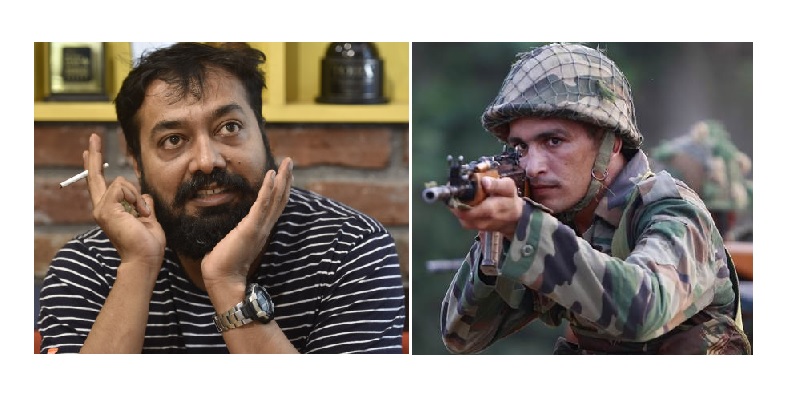Popular film director Anurag Kashyap known for his movies like Gangs of Wasseypur, Dev D and Black Friday and the Netflix series Sacred Games on Wednesday (June 17) tweeted asking whether surgical strike was not allowed in China.
He tweeted in Hindi “Ek sawaal tha – yeh China mein surgical strike allowed nahi hai kya?” (I have a question – This surgical strike is not allowed in China is it?)
एक सवाल था – यह China में सर्जिकल स्ट्राइक allowed नहीं है क्या ?
— Anurag Kashyap (@anuragkashyap72) June 17, 2020
His tweet came across as a sly dig at the 2016 surgical strike that followed the Uri attack on the Indian army.
Prior to this, Kashyap on June 16 tweeted in Hindi “Darpok hona buri baat nahi hai, Lekin darr ko sveekaar kar lena badi baat hai” (Being a coward is not a bad thing. But accepting fear is a big deal.)
डरपोक होना बुरी बात नहीं है । लेकिन डर को स्वीकार कर लेना बड़ी बात है ।
— Anurag Kashyap (@anuragkashyap72) June 16, 2020
While the above tweet does not have direct reference to the Indian Army, the tweet came as news of violent faceoff between India and China made headlines.
Both the above tweets have not gone well with netizens as it tries demean the India and Indian Army. It is to be noted that Anurag Kashyap did not put out a single tweet in condolence of the soldiers martyred. Here are some of the responses to his tweet that is being called out for its insensitivity.
https://twitter.com/SumitkadeI/status/1273334408087363584
Desh drohi to pehele se the, bus modi k pm ban ne k baad wo bahar aane lage hai..Pehele wo ek parivar ki chamchagiri krne mei busy the
— Rakesh Singh Chaudhary (@RakeshC45120708) June 18, 2020
https://twitter.com/orthodontistra2/status/1273469493210222597
Anurag Kashyap is known for making statements against Prime Minister Modi and the BJP. He had supported demonstrations against the Citizenship Amendment Act 2019 that sought to fasttrack citizenship process for persecuted religious minorities from Pakistan, Bangladesh and Afghanistan. He had earlier asked in 2016 as to why PM Modi hasn’t apologized for meeting then Prime Minister of Pakistan Nawaz Sharif in December 2015.
India carried out surgical strike across the Line of Control in Pakistan in 2016 on the basis of intelligence input about terrorist camps that were planning to carry out attacks in India. China on the other hand does not harbour terrorist outfits and camps. The dispute between India and China along the Line of Actual Control has been due to the difference in perception of the border.

